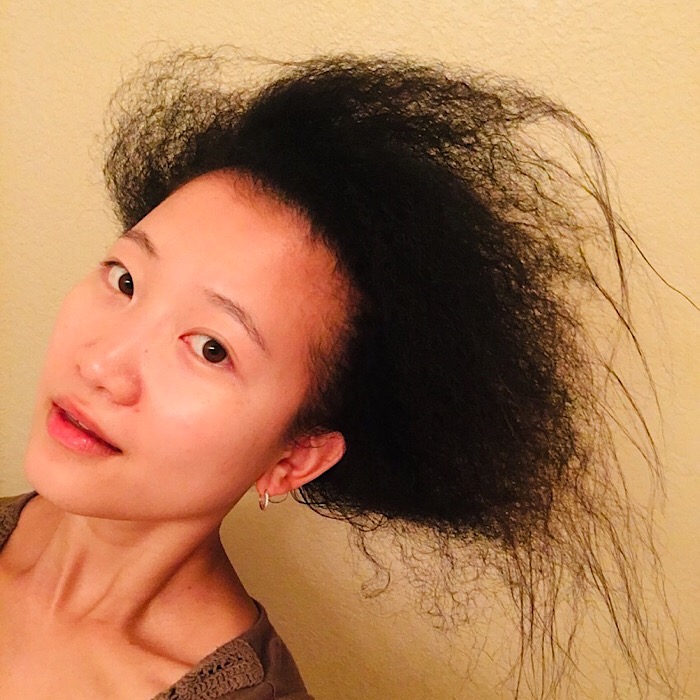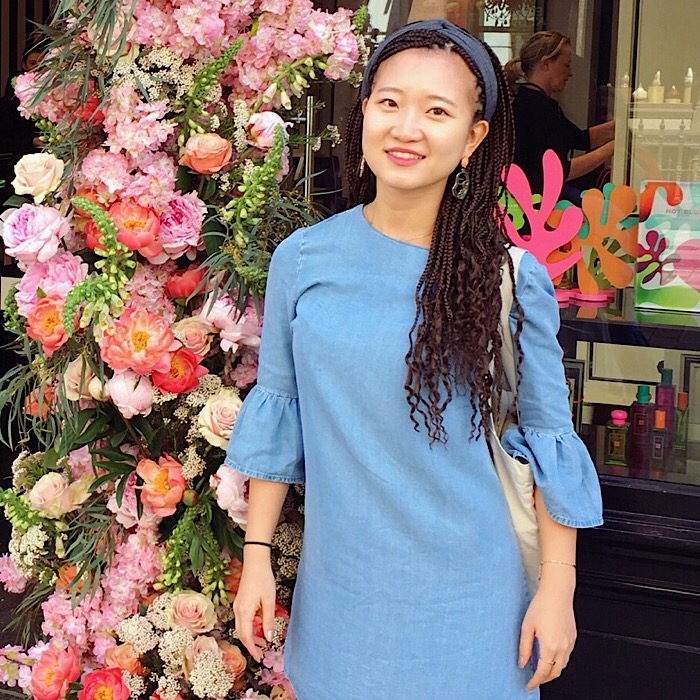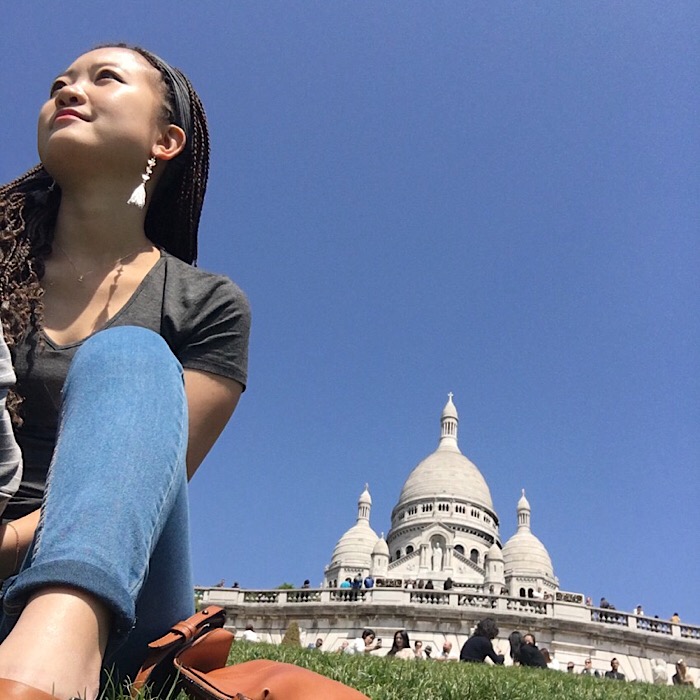
What was it like for you growing up with textured hair?
It wasn’t easy growing up with coarse curly hair in South Korea. My hair always attracted people’s attention, not in a positive way. I stood out in the crowd so much that I felt like I couldn’t do anything wrong as a kid because everyone remembers me for my hair. Strangers would ask my mom or me why my hair is so curly. The older generation would make a comparison between a Korean singer whose father was African American and me. I think she was the only person they knew with such textured hair. (But both of my parents are Korean.”> Mean boys at school used to call me an alien. I remember feeling empowered, showing up at school with straightened hair. My friends would tell me that I looked so different and pretty that they couldn’t recognize me.
What made you decide to embrace your naturally curly hair?
I studied abroad in Mexico in college. For less than one year I stayed there, I heard more compliments on my hair than in my entire life in South Korea. Although I had straightened my hair before going to Mexico, people recognized my texture as it grew. I learned that my hair could be seen as beautiful, not just interesting and strange. It was a pleasant shock. I also made friends who had curly/coily/wavy hair and enlightened me about hair types, hair regimen, etc.
When I traveled to New York after the first semester in Mexico, I felt brave enough to try something that I wouldn’t dare to do in South Korea. I did my research and got box braids in Brooklyn. I was approached, praised, and photographed by so many people in NYC. Then I started thinking about how to respect and embrace my hair.
What has been the most empowering moment of your natural hair journey so far?
I still feel a sense of achievement and self-respect every time I look into the mirror. Seeing myself with my natural hair and feeling comfortable with the image is empowering. I am finally confident and unapologetic in my natural hair, which was not the case while growing up and living in South Korea. Everything has been new and challenging for me without a friend, sister, or mom to teach me, but it’s worth it.

How do you protect your curls at night?
I used to wear a satin cap, but these days I make a high bun instead. It helps to style the next morning as well. I should probably get a silk hair cover for the night though.
Who is your curl crush?
Jasmine Brown (youtuber”> has amazingly healthy and voluptuous hair. I fell in love with her curls the moment I saw her!!! She pulls off so many styles as well.
What’s your curly girl essential you can’t live without?
Coconut oil. It smoothes my hair after washing and thus makes combing so much easier. Since my first challenge during the transition was combing my hair in a way that doesn’t cause extra damage, I appreciate anything and everything that helps detangling.
What is your current hair regimen? Any favorite products you’d like to share?
To be honest, I am still transitioning and trying to figure my hair regimen out. Currently, my hair wash day routine looks like this: I wash my hair with Cantu Complete Conditioning Co-Wash. If my hair feels extra-greasy, I use Cantu Sulfate-Free Cleansing Cream Shampoo instead. After I towel dry, I apply coconut oil and Cantu Daily Oil Moisturizer or Shea Butter Leave-In Conditioning Cream. I am considering incorporating 100% natural products in my routine though!
What has been the most challenging moment of your natural hair journey so far?
The most challenging moment of my natural hair journey was whenever I had an urge to straighten my hair permanently. My transitioning hair looked weird, and I didn’t know how to style it. I didn’t know what to expect when this process is done. I had to fight the temptation to go back to what was easier for me. Still, I think I’ve come this far because I have been living in the U.S. In South Korea, my self-image projected through other people’s eyes would have weighed on me even worse. In sum, I learned that I have to be brave, adventurous, and playful to complete the natural hair journey successfully.

Are there any techniques or methods that have made a huge impact on your hair health?
I find that wearing my hair in high bun styles is not only cute, but beneficial for my hair health. In the early stages of transitioning, it was hard to make a high bun due to the lack of length. Now that I am able to make a high bun instead, I feel like my ends are less damaged.
What’s your advice to women who are still struggling with loving their natural texture?
I’m sure a lot of women with curly hair struggle regardless of their race, ethnicity, or nationality. However, I would like to gear my advice specifically towards women in a culture where coarse and kinky curls are extremely rare. This is something that I wish somebody had told me when I was young: You might feel like you are alone because you look different and nobody knows what to do with your hair, not even your mom. You might feel unpretty because people keep telling you that you look more beautiful with straight unhealthy hair. I want you to know that the world is big, that you will find a community even though it might not be where you are from, and that you look most beautiful when you love yourself.
What’s your hair story? Share your story with us here to be featured in our Texture Tales series.
